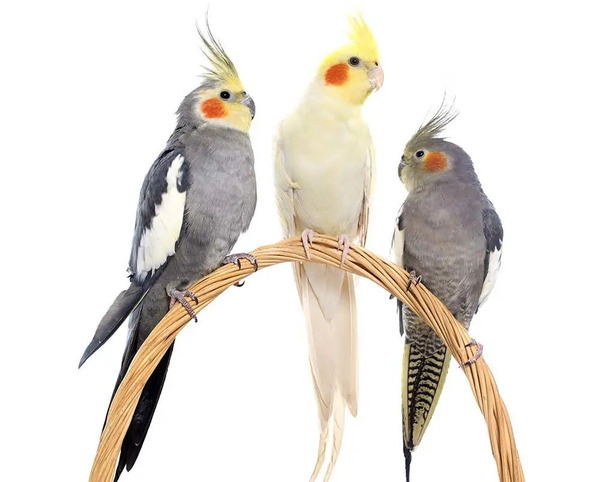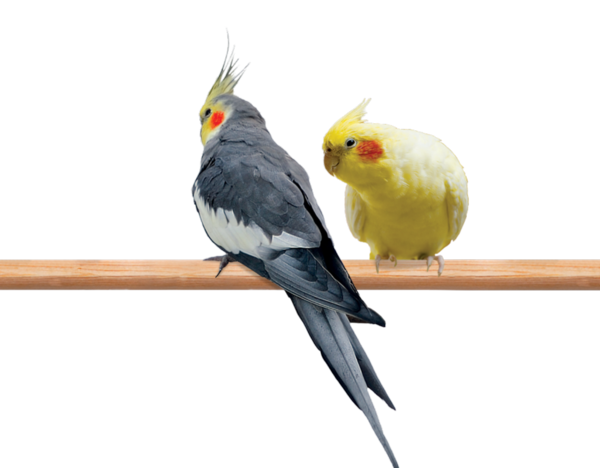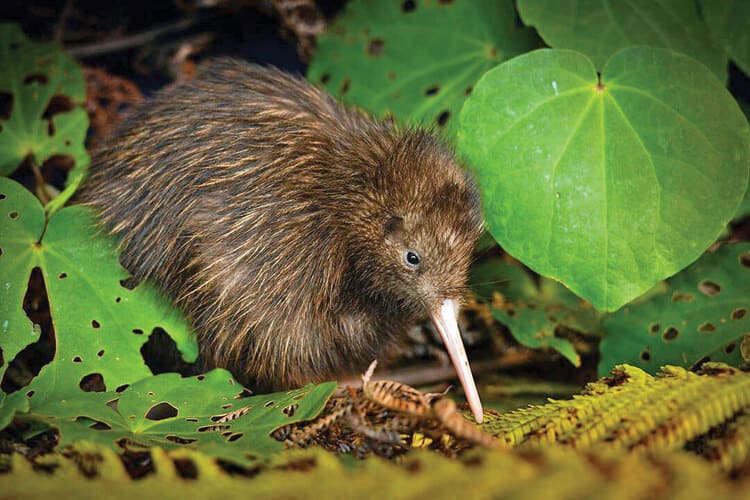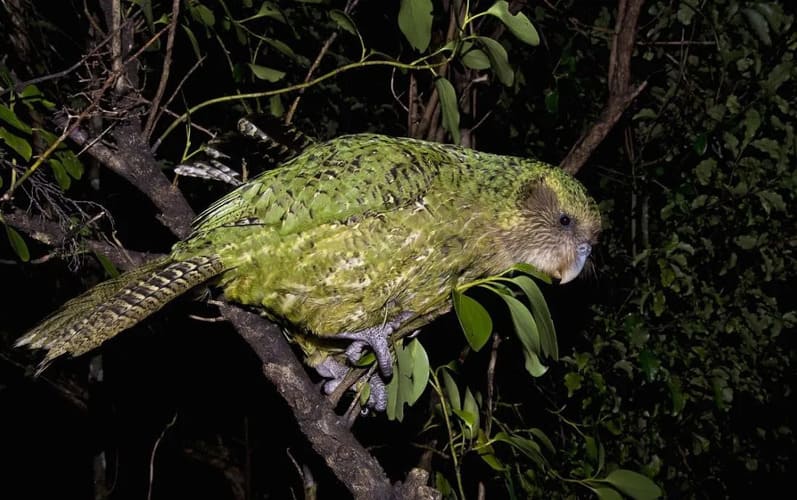Cockatiels
IUCN
LCBasic Information
Scientific classification
- name:Cockatiels
- Scientific Name:
- Outline:Climbing birds
- Family:Cockatiel
Vital signs
- length:
- Weight:
- lifetime:15-20
Feature
Distribution and Habitat
Appearance
Details
Introduction
Cockatiels are one of the most popular pet birds out there, and it's easy to see why. These small, friendly, and highly intelligent birds are known for their charming personalities and entertaining behaviors. Whether you're thinking about adopting a cockatiel or you're already a proud bird owner, this guide will cover everything you need to know about cockatiel care, behavior, health, breeding, and more!
Table of Contents
1. Cockatiel Care: Tips for a Healthy Bird
Taking care of a cockatiel means paying attention to their diet, grooming needs, and overall health. Here’s what you should focus on:
Diet: Cockatiels thrive on a balanced diet that includes seeds, pellets, fresh vegetables, and occasional fruits. Avoid feeding them avocado or chocolate, as these can be toxic to birds.
Grooming: Regular grooming is essential for a cockatiel’s well-being. They love to bathe, so providing them with a shallow water dish or spraying them with water is a great way to keep their feathers clean.
Cage Size: Make sure your cockatiel has a spacious cage that allows them to spread their wings and move around freely. The cage should also include various perches for them to hop from.
2. Cockatiel Behavior: Understanding Your Pet
Cockatiels are known for their playful, affectionate nature. But understanding their behavior is key to being a good bird owner.
Chirping and Whistling: Cockatiels are vocal birds. While not known for speaking as well as parrots, they can learn to whistle and mimic sounds. You might even hear them mimic their owner’s voice after spending enough time together.
Temperament: These birds are generally gentle and friendly, making them great companions. However, they can be a bit shy at first, especially with new people, but once they warm up, they’re incredibly affectionate.
3. Cockatiel Species and Variations: Types of Cockatiels
While the standard cockatiel is the most well-known, there are a few different types of cockatiels based on color mutations:
Pearl Cockatiels: These have a lovely, speckled appearance that looks like pearl spots on their feathers.
Lutino Cockatiels: Known for their bright yellow feathers, lutinos have a striking, vibrant appearance.
Albino Cockatiels: These are the completely white variety with red eyes, making them stand out.
White-Faced Cockatiels: These cockatiels have lighter-colored faces compared to the usual gray and yellow.
Understanding the different types can help you choose the right cockatiel for your home.
4. Cockatiel Health: Keeping Your Bird in Top Shape
To ensure your cockatiel lives a long, healthy life, keep an eye on the following:
Lifespan: Cockatiels live an average of 15 to 20 years, but with proper care, some can even live longer. Their lifespan largely depends on their diet, exercise, and general well-being.
Common Health Issues: Cockatiels can suffer from diseases like avian pox, mites, or respiratory infections. Regular check-ups with an avian vet are essential. Keep an eye out for changes in behavior like lethargy, feather plucking, or changes in droppings.
Molting: Every year, cockatiels go through a molting process where they shed old feathers and grow new ones. During this time, they may seem a little more irritable or tired than usual, which is completely normal.
5. Cockatiel Breeding: What You Should Know
If you're considering breeding cockatiels, here's what you need to know:
Breeding Tips: Make sure the pair is healthy and has a large enough space. Cockatiels are known to breed easily, and the female will lay 3-7 eggs. You should ensure that both birds have a proper diet and a comfortable nest box.
Chicks: Cockatiel chicks usually hatch within 18-21 days. The parents will care for the chicks, feeding them regurgitated food until they are old enough to eat on their own.
6. Cockatiel Housing: Creating a Comfortable Home
Cage Setup: Cockatiels need a spacious cage to move around freely. A flight cage is ideal, allowing them room to exercise and stretch their wings.
Perches: Different types of perches are important for keeping your cockatiel’s feet healthy. Vary the sizes and materials of the perches (wood, rope, etc.) to prevent foot problems.
Toys: These playful birds love to play with toys. You can provide swings, ladders, and chew toys to keep them entertained.
7. Cockatiel Sounds and Communication: Talking and Whistling
Cockatiels are known for their ability to whistle and chirp. While not great talkers like parrots, they can still mimic sounds and phrases. Here’s what to expect:
Whistling: Cockatiels love to whistle and can learn a variety of tunes. Some owners even train them to whistle specific songs.
Chirping: Chirping is their natural way of communicating, whether it's to express happiness, greet you, or get your attention.
8. Cockatiel Training: Tips for Success
Training your cockatiel can be a fun and rewarding experience. Start by:
Positive Reinforcement: Use treats and praise to reward good behavior.
Teaching Tricks: Cockatiels can learn simple tricks like step-up, wave, or even spin in circles.
Talking: With patience, some cockatiels can learn to mimic a few words or phrases.
9. Cockatiel Socialization: Bonding with Your Bird
Cockatiels are social creatures, so bonding is important:
Interaction: Spend time talking to your bird every day. Cockatiels love human interaction and can become very attached to their owners.
Other Birds: Cockatiels tend to get along well with other cockatiels, but introductions should be done slowly to avoid aggression.
Bonding with Other Pets: If you have other pets, it’s important to supervise interactions, especially with dogs and cats, to ensure the safety of your cockatiel.
10. Cockatiel Adoption and Purchase: How to Choose the Right One
When adopting or purchasing a cockatiel, consider the following:
Where to Buy: Look for reputable breeders or bird adoption centers. Always choose a healthy bird with clear eyes, clean feathers, and active behavior.
Cost: Cockatiels typically cost between $100 to $250 depending on the type and mutation. Additional costs include the cage, food, toys, and other accessories.
Health Check: Ensure the bird has been properly vet-checked before bringing it home.
11. Fun Facts About Cockatiels
Cockatiels are the smallest members of the cockatoo family.
They are known for their distinctive crest on top of their heads.
Cockatiels can live up to 20 years with proper care.
They are very intelligent and can be trained to do tricks or talk.
Conclusion
Cockatiels make wonderful pets, offering endless entertainment with their playful nature and social personalities. With proper care, a spacious home, and lots of love, your cockatiel can thrive and become a cherished member of your family for many years to come.
This article provides a comprehensive guide to cockatiels, from care and behavior to health and breeding. It’s designed to give potential and current cockatiel owners all the information they need to keep their feathered friends happy and healthy.
FAQ
FAQs About Cockatiels
How long do cockatiels live?
Cockatiels live for about 15-20 years, but with proper care, they can live even longer.
Can cockatiels talk?
While cockatiels are not as good at talking as larger parrots, they can learn to mimic sounds, whistles, and even a few words.
What’s the best diet for a cockatiel?
A healthy diet for a cockatiel includes seeds, pellets, fresh vegetables, and occasional fruits. Avoid feeding them foods like avocado and chocolate.
How often should I groom my cockatiel?
Cockatiels enjoy bathing, so providing a shallow water dish or misting them with water a few times a week is ideal for their grooming needs.
Are cockatiels good with other pets?
Cockatiels are generally friendly with other birds but should be introduced slowly to avoid conflict. Be cautious with dogs and cats, and supervise any interactions.









